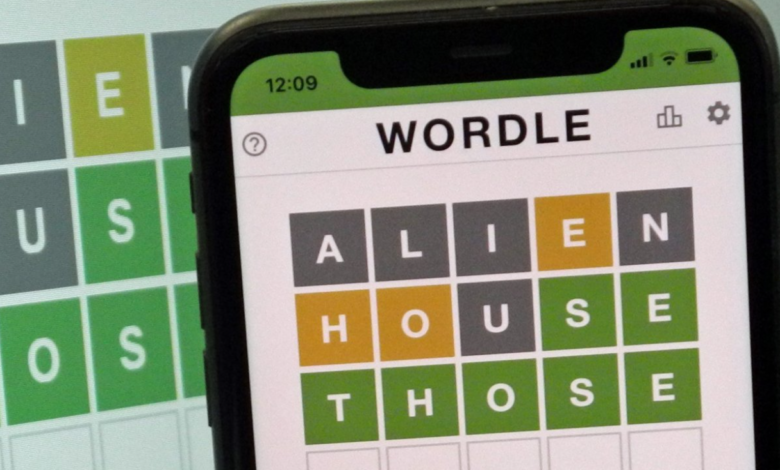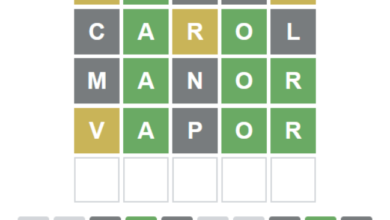Mastering Wordle with Try Hard Guides: Five Letter Words Strategy

Wordle has become a worldwide sensation, and it’s easy to see why. The game is simple but addictive, and every day brings a new challenge with a hidden five-letter word to guess. But while some players enjoy the casual fun, others want to improve their skills and win more consistently. If you’re one of those players who takes the game seriously, you need a try hard guide for five-letter words to maximize your performance.
In this article, we’ll dive into strategies, tips, and techniques designed to help you master five-letter words in Wordle. Whether you’re new to the game or an experienced player, these methods will help you guess more efficiently, improving your chances of solving the puzzle in fewer attempts.
Why Focus on Five-Letter Words?
Wordle revolves around five-letter words, so understanding common letter patterns and combinations is key to solving the puzzle efficiently. Knowing how to approach the game with a strategic mindset allows you to move from random guessing to making educated choices that increase your odds of winning.
Try hard guides for five-letter words help you identify the most effective starting words, eliminate incorrect letters early, and recognize common word patterns to make your gameplay more systematic and successful.
Key Strategies in Try Hard Guides for Five Letter Words
1. Start with Vowel-Rich Words
One of the first pieces of advice you’ll encounter in try hard guides for five-letter words is to start each Wordle game with words that include a lot of vowels. Vowels are common in English words, and identifying them early can give you valuable clues about the solution.
Some excellent starter words include:
- Audio: Contains four vowels, helping you quickly identify which vowels are present.
- Adieu: Another great word with multiple vowels to test.
- Ouija: This word has a mix of vowels that can quickly reveal essential information.
These words help you identify the structure of the word by determining which vowels are in play. By narrowing down vowel usage, you can make more targeted guesses in subsequent rounds.
2. Leverage High-Frequency Consonants
After identifying vowels, focus on using high-frequency consonants. Letters such as “R,” “S,” “T,” “N,” and “L” are extremely common in five-letter words. Using these letters early in your guesses allows you to eliminate a significant portion of the potential words.
Here are a few strong five-letter words that contain both high-frequency consonants and vowels:
- Stone
- Crane
- Slate
- Trace
These words not only give you insight into vowels but also test some of the most commonly used consonants.
3. Eliminate Unlikely Letters
A critical aspect of try hard guides for five-letter words is the process of elimination. Each guess should provide you with important information about the letters that are not in the word. Once you’ve eliminated certain letters, avoid using them again in future guesses to save valuable attempts.
For example, if you guess “stone” and find that “S” and “T” are not part of the word, make sure your next guess avoids those letters while incorporating the correct ones. The faster you eliminate unnecessary letters, the quicker you’ll arrive at the correct solution.
4. Recognize Common Letter Pairings and Patterns
Some letter combinations appear frequently in English, especially in five-letter words. Recognizing these common pairings helps you make more informed guesses. For instance:
- TH: Think, Thick, Thief
- ST: Start, Stack, Stick
- CR: Crane, Crack, Craft
If you can identify one part of the word, especially at the beginning or end, you can narrow down your guesses by thinking about common combinations of letters.
Advanced Techniques in Try Hard Guides for Five-Letter Words
If you’re looking to go beyond the basics, try hard guides for five-letter words include more advanced strategies that will give you a competitive edge.
1. Tactical Guessing
Tactical guessing is all about making calculated choices based on the information you’ve already gathered. For instance, if you’ve figured out that “A” and “R” are in the word but not in specific positions, your next guess should focus on trying different combinations of those letters while testing new ones.
The goal is to avoid random guesses and instead make every guess meaningful. Each word you choose should either confirm letters in specific positions or eliminate a set of letters, helping you narrow down the possibilities as quickly as possible.
2. Track Your Progress
A successful try hard guide for five-letter words also involves tracking the letters you’ve eliminated and those that are in the correct position. By keeping a mental (or written) note of your progress, you can avoid reusing letters that have already been ruled out. This strategy also helps you visualize which letters might fit in remaining blank spots, making your guesses more informed.
3. Use Wordle Solvers Responsibly
While solving the Wordle puzzle without any outside help is the most satisfying, there are times when a Wordle solver can come in handy. These tools help you identify potential words based on the letters you’ve already guessed. Wordle solvers can be an excellent resource for learning new word patterns and refining your guessing strategy.
However, use these tools sparingly if you want to retain the challenge and enjoyment of solving the puzzle on your own.
Common Mistakes to Avoid in Try Hard Guides for Five-Letter Words
Even seasoned players make mistakes, and knowing what to avoid can improve your Wordle game drastically.
1. Repeating Incorrect Letters
Once a letter has been ruled out, don’t reuse it in future guesses. Every guess should be an opportunity to gather new information or confirm letters you’ve already identified. Wasting guesses on letters you know aren’t part of the solution can reduce your chances of solving the puzzle in time.
2. Starting with Rare Letters
While it might be tempting to use rare letters like “Z,” “Q,” or “X” in your early guesses, it’s better to save those for later in the game once you’ve identified more common letters. Stick with high-frequency letters at the beginning, as this gives you a broader range of potential words to choose from.
3. Not Considering Letter Placement
After confirming that a letter is part of the word, focus on finding its correct position. For example, if “R” is in the word but not in the second position, avoid placing “R” in that spot again. Instead, experiment with different positions to narrow down your options.
Read also: 5 Letter Words Try Hard Guides
FAQs About Try Hard Guides for Five Letter Words
1. What are the best five-letter words to start with in Wordle?
The best starting words are those that contain multiple vowels and common consonants. Words like audio, stone, raise, and crane are popular choices because they help reveal a lot of information early in the game.
2. How can I improve my Wordle strategy?
To improve your Wordle strategy, start with vowel-heavy words, use high-frequency consonants, and eliminate unlikely letters as soon as possible. Focus on recognizing common letter patterns and avoid wasting guesses on letters that have been ruled out.
3. Are Wordle solvers considered cheating?
While using a Wordle solver can be helpful, it can also take away the challenge of solving the puzzle on your own. It’s best to use solvers sparingly and as a learning tool rather than relying on them for every puzzle.
4. How many guesses should I aim for to solve Wordle?
Most experienced players aim to solve Wordle puzzles within 4-6 guesses. With regular practice and by applying the strategies in this guide, you’ll be able to reduce the number of attempts needed to find the correct word.
5. How do I avoid wasting guesses in Wordle?
To avoid wasting guesses, always eliminate letters that have been ruled out and focus on making each guess provide valuable information. Start with high-probability letters and focus on testing different letter positions once you have some clues.
Conclusion
By following the techniques and tips outlined in this try hard guide for five-letter words, you’ll significantly improve your chances of solving Wordle puzzles more efficiently. Focus on using vowel-rich words, leveraging high-frequency consonants, and eliminating unlikely letters early on. With regular practice and a strategic mindset, you’ll find yourself solving Wordle puzzles in fewer guesses and enjoying the game even more.
Whether you’re a casual player or aiming to master Wordle, these strategies will elevate your game and make each puzzle more rewarding. Keep practicing, apply these techniques, and soon, you’ll be able to crack those five-letter words like a pro!




